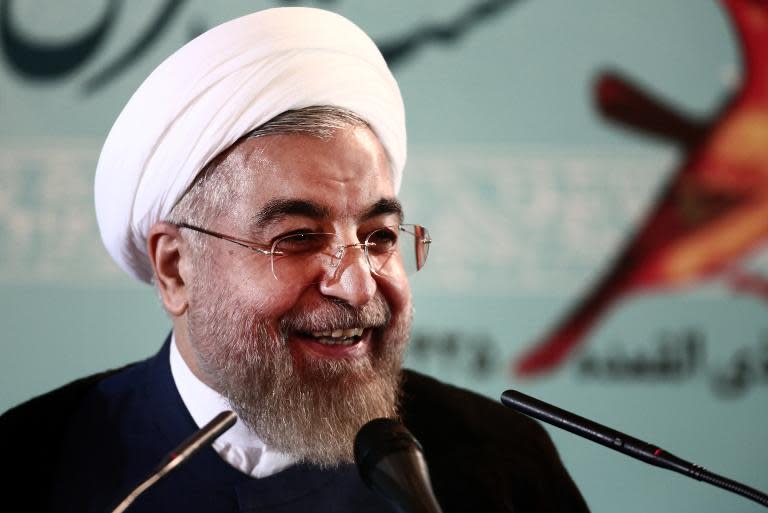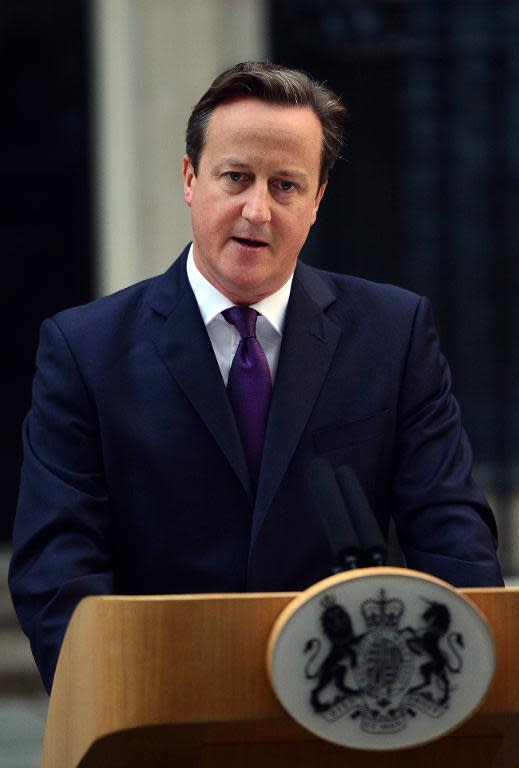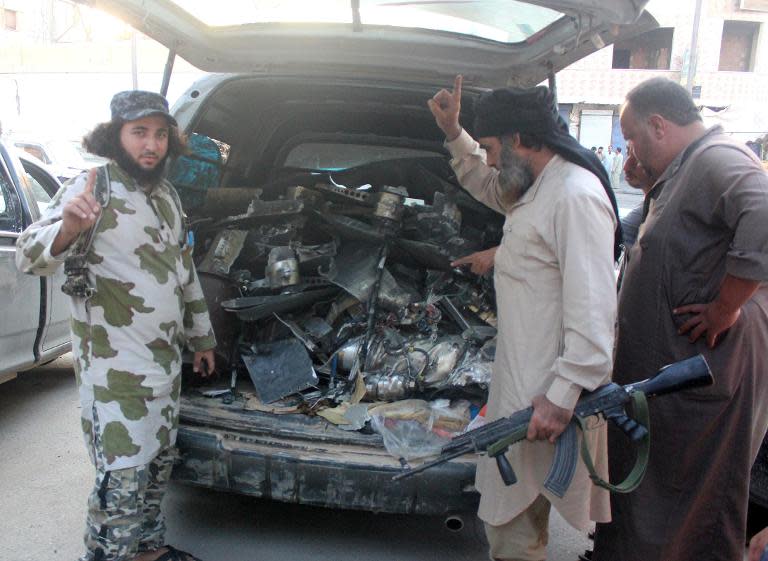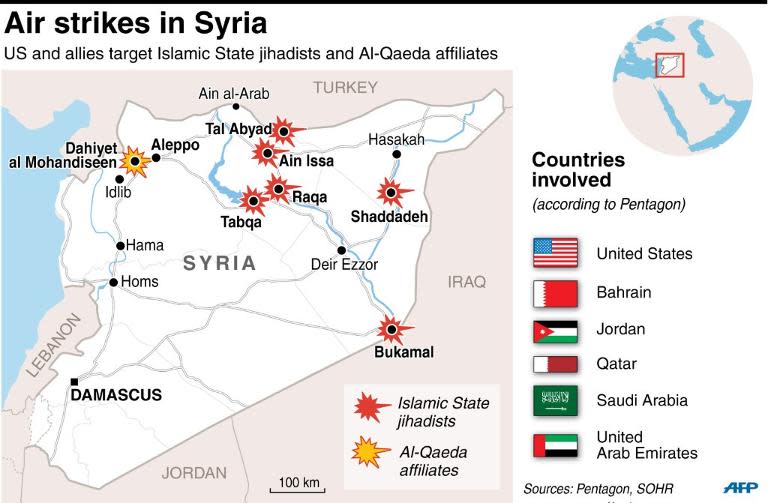British, Iranian leaders to discuss IS at first talks since 1979
British Prime Minister David Cameron is to hold talks with Iran's President Hassan Rouhani over unrest in Iraq and Syria, officials said Tuesday, the first meeting between the country's leaders since the 1979 Islamic Revolution. The talks at the UN General Assembly in New York come as Western powers seek to build support for the fight against the Islamic State (IS) jihadist group, which holds swathes of territory in Iraq and Syria and has beheaded two US journalists plus a British aid worker. The United States and Arab allies launched the first air and sea strikes against Islamic State militants in Syria on Tuesday, while US-led strikes against the group in Iraq have been taking place since the start of August. US Secretary of State John Kerry said on Friday that Iran had a role to play in tackling the group although Tehran has so far seemed reluctant to cooperate. With the US seeking to build an international coalition, Cameron is still deciding whether Britain should join military operations against the IS group. Britain's Ministry of Defence said Tuesday that "discussions were ongoing" about possible action. In the meantime, Cameron and other Western leaders are working on building cooperation in the region, including from Iran, a strong backer of the Syrian government. French President Francois Hollande was also set to meet Rouhani Tuesday. "If Iran is willing to join the international community to defeat ISIL (another name for IS), then we will work with them on that," a Downing Street source quoted by British media said. Britain has supported the creation of a more inclusive Iraqi government and has called for Syrian President Bashar al-Assad to cede power to a broad coalition. Iran is highly influential in both Iraq and Syria through the strong Shiite communities in both countries but it is unclear how open Tehran will be to Western advances. Rouhani said Monday that people in the region were "defending themselves... against the terrorists" and that Iran would help them. He has also criticised the US for not sending in ground troops. Iran's supreme leader Ayatollah Ali Khamenei has also said he rejected a US offer to join the international coalition it has been building against the jihadists. - 'Step by step' - France last week joined the US in conducting air strikes in Iraq. It has vowed that these will continue despite the kidnapping of a French national in Algeria claimed by a group linked to IS jihadists which says it will kill him unless Paris desists. Cameron has pledged to seek the approval of Britain's parliament before joining air strikes on the jihadists, unless there is a compelling case for immediate action such as a humanitarian emergency. But he is desperate to avoid a repeat of last year's humiliating defeat in the House of Commons over military action in Syria. It is thought he wants to be sure that he would have sufficient cross-party support for any military action before considering a recall of parliament. There are currently no plans to recall parliament but this could change on his return from New York. "It would be very odd in a way if UK air power was not part of this package," Professor Michael Clarke, director general of defence think-tank the Royal United Services Institute (RUSI), told BBC radio on Tuesday. "Because Mr Cameron's very aware of the damage the Syria vote did just this time last year, he wants to make sure he gets it right this time so he's taking it step by step." Britain is currently arming Kurdish peshmerga forces fighting IS militants in northern Iraq. As the former colonial power, Britain has had tense ties with Iran since the Islamic Revolution in 1979. Amid an apparent thawing in relations, Britain said in June that it planned to reopen its embassy in Tehran as IS militants gained ground, calling Iran "an important country in a volatile region". But the mission, which was closed in 2011 after being stormed by a mob, has yet to reopen.





